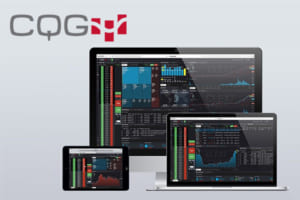- What is a Futures Contracts?
Futures contracts, or futures, are legal agreements to either buy or sell a given security, commodity, or asset at a specific time in the future, for a previously agreed-upon price. For investors, they offer access to commodities and other markets they might not be able to access otherwise. They can also act as a way to protect against volatility.

One important feature of a future contract is that both buyers and sellers can execute the contract regardless of the current market price of the underlying asset when the contract expires.
Investors use futures contracts when they believe that the underlying security will go up or down by a certain amount of time over a fixed period of time. The futures contract buyer enters a legal agreement to buy the underlying asset at the contract’s expiration date. On the other side of the trade, the futures contract seller agrees to deliver the underlying security at the agreed-upon price, when the contract expires.
The majority of futures contracts on a futures exchange are standardized by date and price, to allow for higher trading volumes and simpler transactions.
Investors can buy futures contracts to make money – or to hedge against losses – resulting from the price increases or decreases in stocks and commodities like oil, as well as other financial instruments.
- How do Futures Contracts Work?
In a futures contract, the purchaser gets to buy a given asset at a predetermined price. That can help protect against big price swings up or down, making them popular not only with investors, but with companies that rely on commodities that experience sudden price changes.
- Example of a Futures Contract
An airline, for example, might buy an oil futures contract to lock in the price of the oil that it will need to buy to get its jets off the ground in the coming months. Purchasing the futures contract allows the airline to guard against the financial harm of a sudden rise in the price of fuel. The risk to the airline, however, is that oil prices will go down – in which case, it will miss out on those lower prices.

On the other side of this hypothetical transaction is a fuel distributor, which has millions of gallons of oil in its inventory. It would sell the oil futures contract as a way of maintaining a steady market for its oil in the coming months. That’s because the airline buying the futures contract must buy the fuel at the agreed-upon price on the dates specified in the contract. That removes some risk for the oil distributor, but it also creates a risk if oil prices climb before the futures contract expires. Should that happen, the oil distributor will still have to sell the oil at the lower price specified in the futures contract.
To stay with this example, in the futures contract, the airline and the oil distributor will set and agree upon the terms, specifically the price of the oil and the expiration date upon which the contract expires. In this contract, the distributor agrees to sell 1,000 barrels of oil at $50 per barrel, in exactly 90 days. If the price of oil in 90 days is $75 per barrel, then the airline will have gotten a good deal. If a barrel of oil falls to $35, then the oil supplier will have protected itself against the price declines.
- Futures Contracts Pros & Cons
| Pros | Cons |
| Futures contracts act as a hedge against the risks related to price volatility.
Most futures markets are highly liquid, allowing traders to buy and sell when they want. Futures may give investors access to commodities, and other markets not normally accessible to everyday investors. Futures contract pricing is determined by adding the cost of carrying the underlying asset to its spot price. |
Futures contracts can be a high-risk investment. In some cases, a futures contract can lose all of its value and trade at $0 when it expires.
Futures contracts can reduce or eliminate potential gains from price swings in the underlying securities or assets. Futures contracts themselves are often highly volatile, with their prices fluctuating wildly. You may have to pay high commission charges on high-volume trades. |
Source: SoFi





![[CRUDE OIL] Factors Impact On Crude Oil Price (End): Impacting of Geopolitics](https://straitsvietnam.com/wp-content/uploads/2022/08/GettyImages_1238768051.0-300x200.jpg)